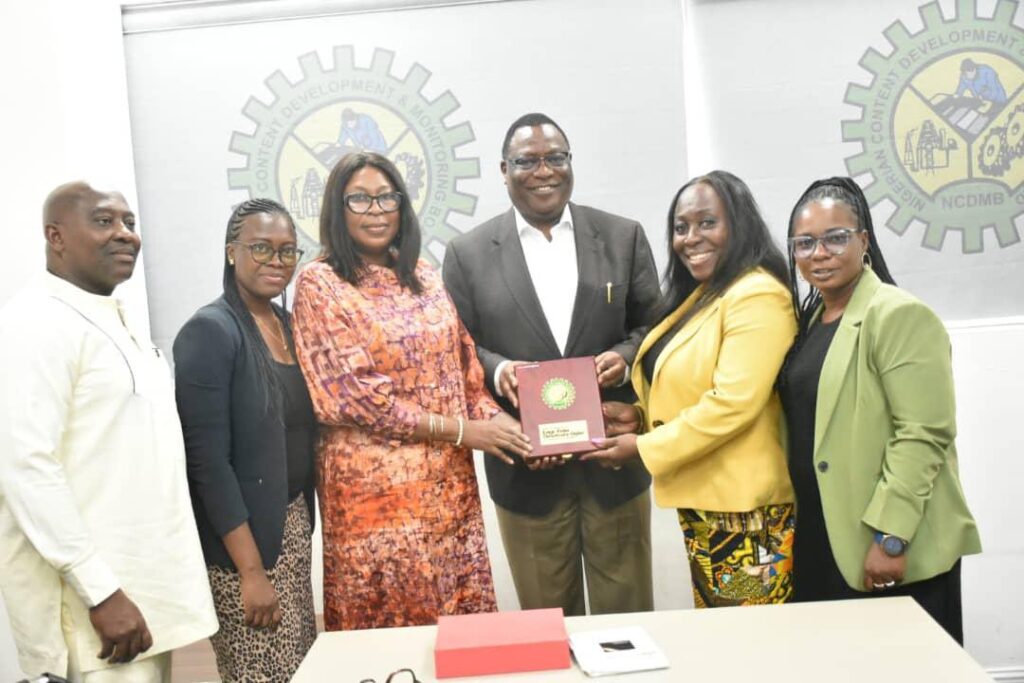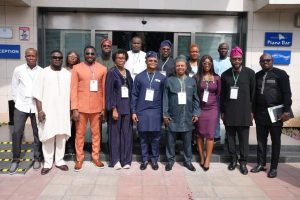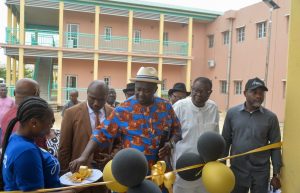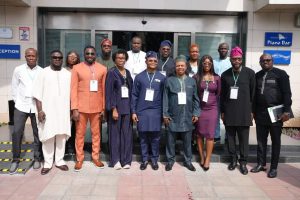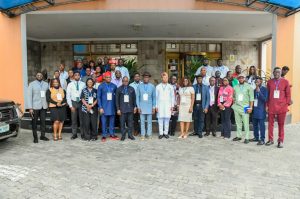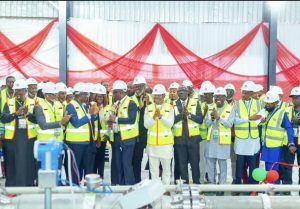NCDMB, Petroleum Commission Ghana Begin Technical Cooperation
In furtherance of its long-standing support to African oil and gas producing countries and development of local content in the continent, the Nigerian Content Development and Monitoring Board (NCDMB) on Monday in Lagos began a five-day knowledge sharing programme with the Petroleum Commission of Ghana.
The engagement seeks to establish technical cooperation between the NCDMB and the Ghanaian Commission through capacity building and learning from the Board’s rich experiences, best practices and procedures in local content development.
Part of the objectives are to foster the Petroleum Commission of Ghana’s efforts to institute an effective framework that will enhance compliance and deepen local content in their nation’s oil and gas industry.
The opening day’s activities included a courtesy visit to the Executive Secretary of the NCDMB, Engr. Felix Omatsola Ogbe, at the Board’s liaison office in Lagos. The NCDMB’shelmsman welcomed the delegation to Nigeria and relayed the Board’s unwavering commitment to the development of African local content.
In his opening remarks, the Director Monitoring and Evaluation NCDMB, Mr. Abdulmalik Halilu emphasized the need for close cooperation among African oil-producing countries, noting that the technological and financial challenges facing the industry cannot be solved when countries operate in silos. He canvassed that African oil producing countries should develop unique and specialized capabilities that would facilitate effective trade amongst themselves, and grow the African economy, as envisaged by the African Continental Free Trade Agreement (AfCTA).
Thereafter, other key officials shared NCDMB’s strategies and operating templates covering supplier development initiatives, Nigerian Oil and Gas Parks Scheme (NOGaPS) and the structure and operations of the agency.
Presentations in the later days of the week would focus on the operating framework forNigerian Content planning, research and statistics, succession planning processes, Nigerian Joint Qualification System (NJQS), Biometrics system, human capacity building, institutional strengthening, Nigerian Content Equipment Certification (NCEC) and other templates.
Other themes that would be explored as part of the engagement include the Nigerian Content Development Fund (NCDF) operating framework, the Projects Certification and Authorization Division (PCAD) templates and implementing framework, the Monitoring and Evaluation implementing framework and the Community Content Guidelines and Stakeholder Management strategies and many more.
The Petroleum Technology Association of Nigeria (PETAN), Project 100 companies and the Oil Producers Trade Section (OPTS), which is the umbrella body of leading international and indigenous oil producing companies in Nigeria would equally make presentations at the sessions.
The engagement would end on Friday with NCDMB and the Commission reviewing a draft memorandum of understanding and protocols for data sharing.
The engagement with the Ghana Petroleum Commission agency follows similar sessions the Board has had with the Uganda National Oil Company (UNOC) and the Mozambique’s national oil company, Empresa Nacional de Hidrocarbonetos (ENH), earlier in the year.
The Board’s support to the African petroleum industry is propelled by the Nigerian Content 10-year strategic roadmap, which has sectoral and regional linkages as one of its five pillars.
A key initiative of the pillar on sectorial and regional linkage is the Board’s close collaboration with the African Petroleum Producers Organization (APPO).
Under the collaboration, NCDMB has organized several workshops in partnership with APPO, with the inaugural edition held in 2021 at the Nigerian Content Tower, Yenagoa, Bayelsa State, where the idea for an African Energy Bank, was mooted by the NCDMB.
The Energy Bank has now become fully established under APPO, with the headquarters approved for Abuja.
Discover more from Nigerian Content Development & Monitoring Board
Subscribe to get the latest posts sent to your email.
